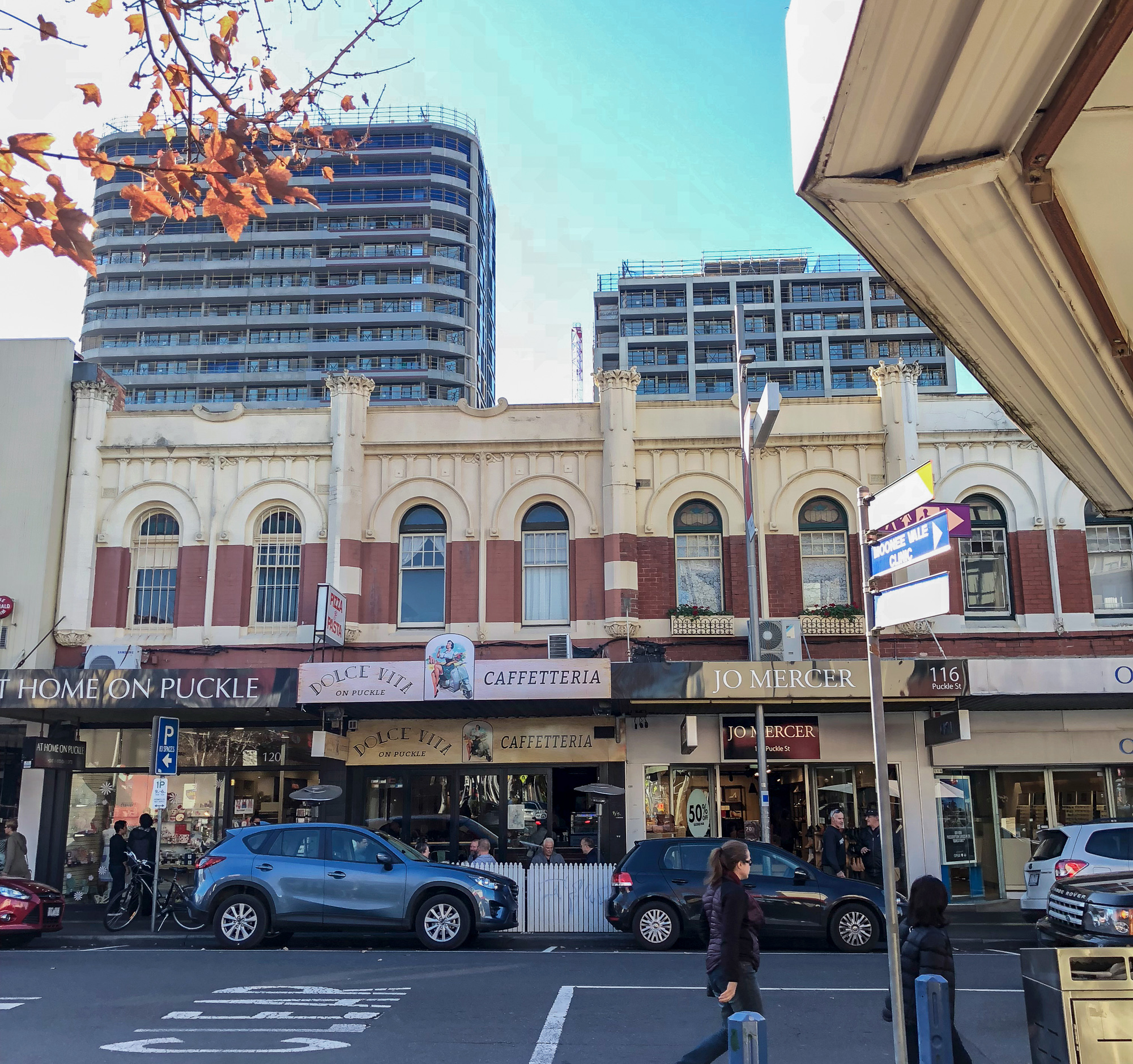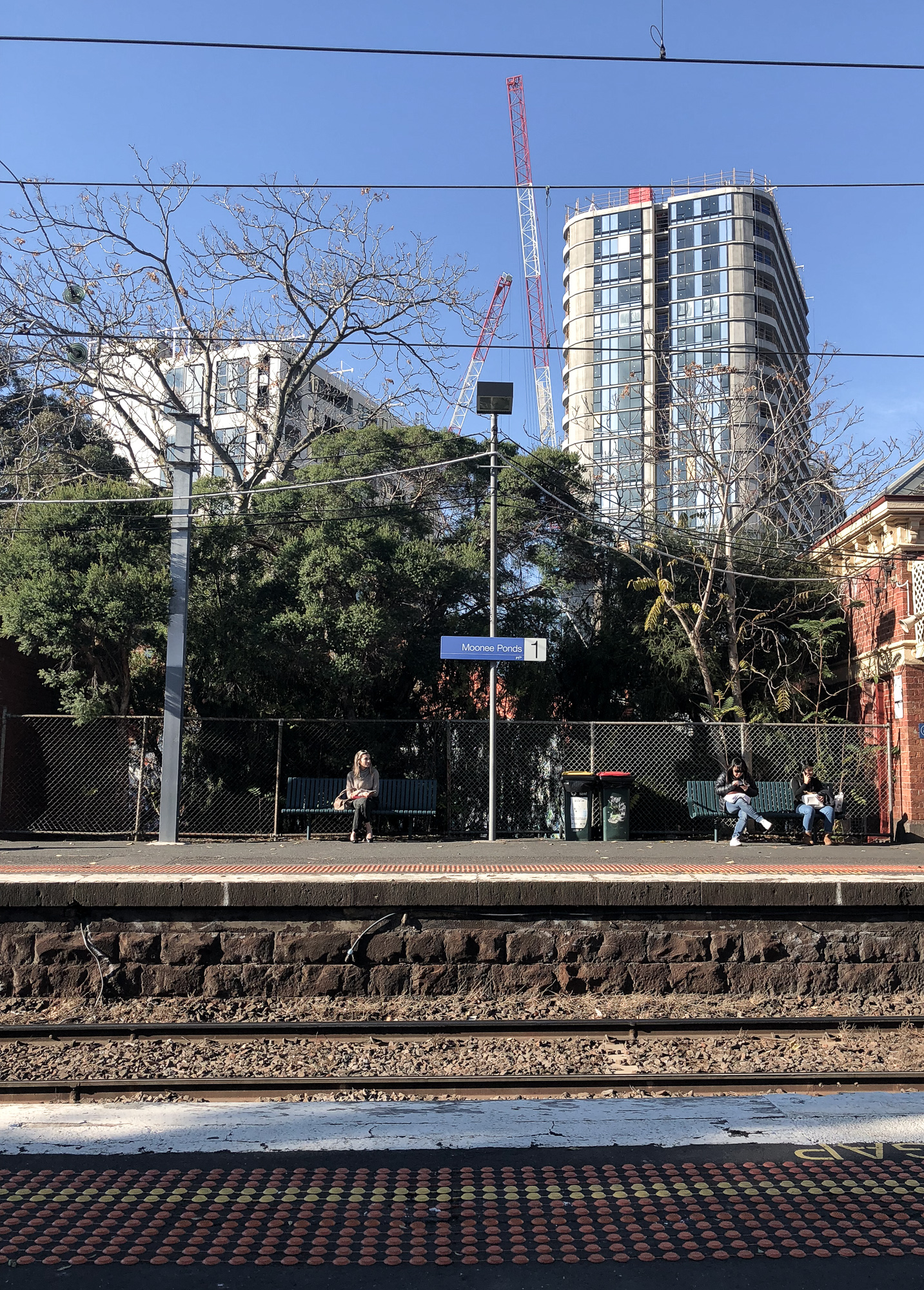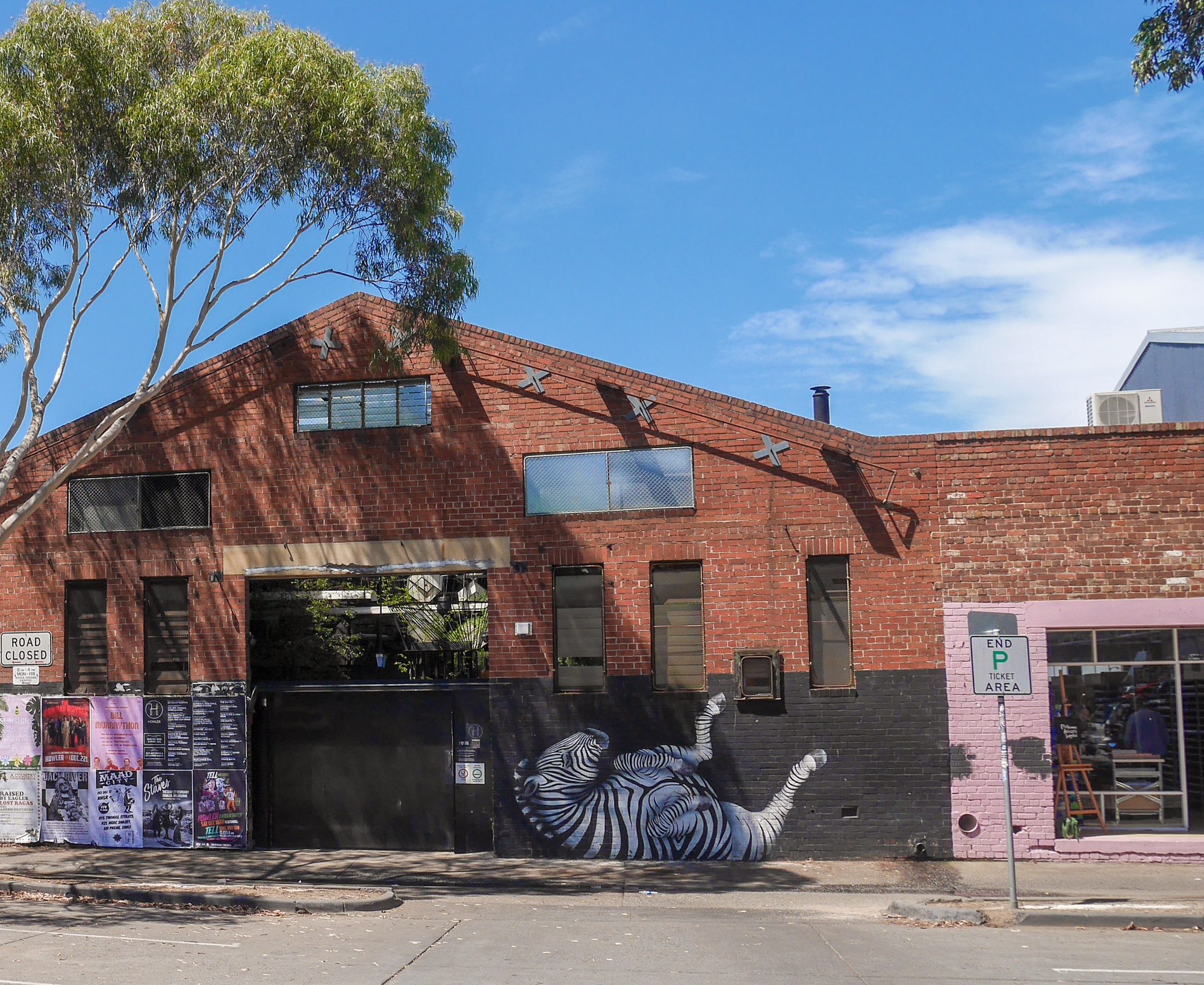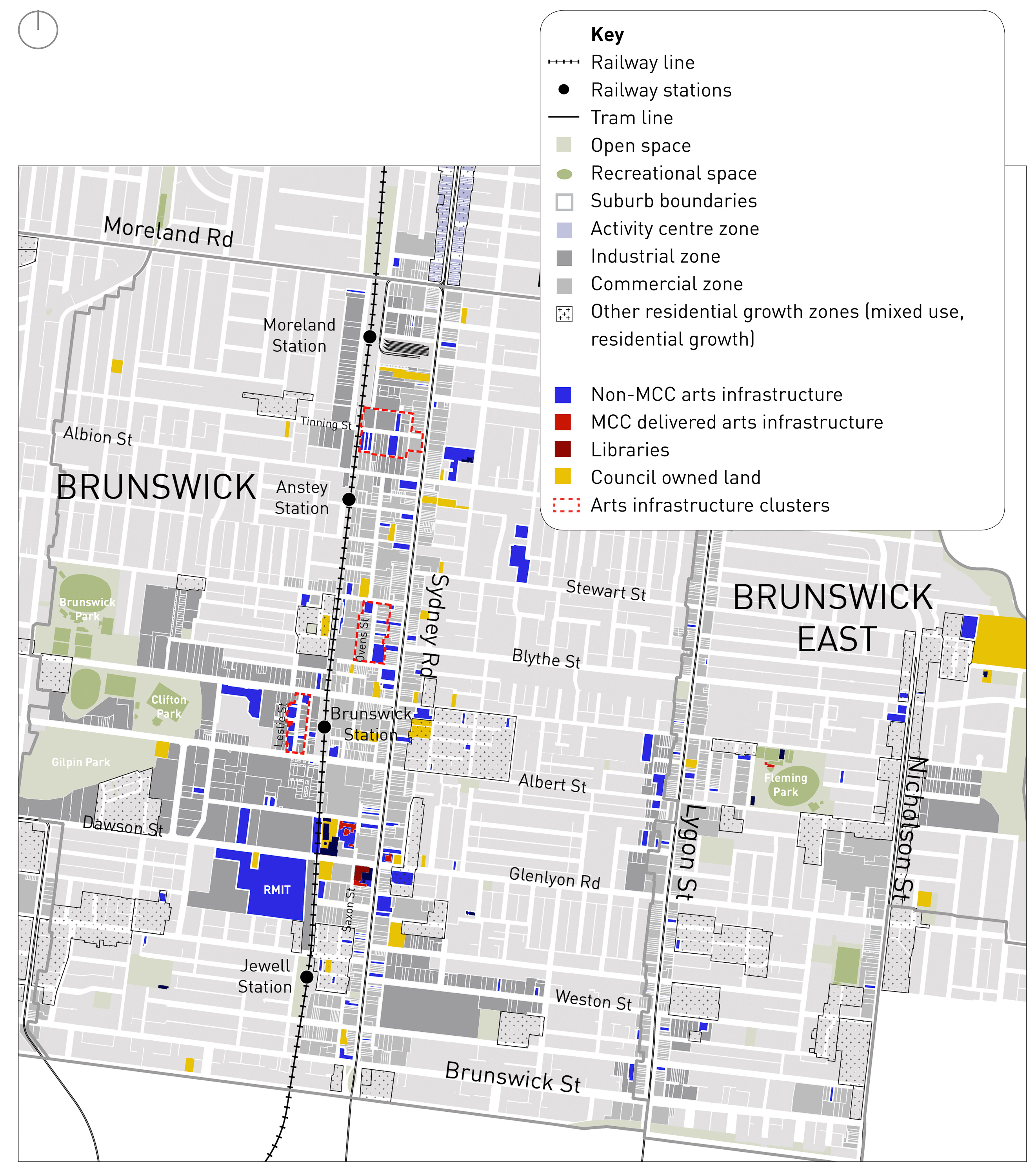Moonee Ponds is a neighbourhood in the inner-north of Melbourne. It is an identified Major Activity Centre centred on Puckle Street, the traditional high street. The Moonee Ponds Activity Centre was the first project announced in the state government's Activity Centre Pilot Program. This program sought to identify how planning controls in activity centres could more effectively support adopted council strategies, provide clarity on the use of height controls and provide certainty for the community on the future scale of development. The key impetus for the program was community concern over the approval of a 30-storey tower development that is double the preferred height limit specified in the planning policy.

Hodyl & Co were engaged to develop built form controls for the Moonee Ponds Activity Centre. Our work proposes revised planning controls that respond to the valued character of the precinct, that improve design outcomes and that contribute to the delivery of identified strategic objectives within the centre. The controls need to support projected population growth, retention of jobs, expansion of employment opportunities and the delivery of high quality open space and affordable housing.
The built form controls must successfully deliver design excellence on large complex strategic sites, as well as catering to smaller, infill sites. Our design process was iterative and involved extensive built form testing that led to the establishment of context-specific built form controls.

Related Projects
Fishermans Bend Urban Design Strategy
Moreland Arts Infrastructure Plan
Moreland is home to a robust, diverse and vibrant arts community. Neighbourhoods such as Brunswick and Brunswick East in particular have an established and celebrated creative atmosphere that contributes to a strong community identity, community cohesion and well-being. Creative industries thrive in areas where affordable spaces that are suitable for arts practitioners exist. Increased development pressure in inner city suburbs has begun to threaten the long-term viability of many creative spaces in Moreland.

In 2017, the City of Moreland published their Arts and Culture Strategy - Creative Capital, which asserts their commitment to building a resilient arts sector in Moreland. As part of this Strategy, the Council proposed the development of an Arts Hub(s), recognising the need for more accessible and affordable spaces for creative industries in Moreland.
Our approach focused on assessing the needs of the local creative community and the current supply of creative spaces within Moreland. The methodology included mapping all creative spaces in Moreland (over 200 spaces), consulting with local artists across a range of practices (including visual artists, performing artists and musicians), assessing existing council-owned assets and analysing case studies of contemporary arts hubs and precincts. The recommendations included the re-purposing of Council buildings, the retention of industrial zoning in specific locations to support creative industry, the establishment of a new digital arts platform, a tailored leadership program to build capacity in the arts sector and the employment of a dedicated arts infrastructure officer to drive the implementation of the plan.

The Moreland Arts Infrastructure Plan applied an evidence-based method to interrogate the best approach to supporting creative industries in Moreland. In response to the findings, the plan recommends a suite of practical initiatives to protect and encourage the flourishing of creativity in Moreland.
The Moreland Arts Infrastructure Plan was endorsed by the City of Moreland in March 2018. Implementation of the plan commenced immediately with four of the eight key recommendations actioned within six months of endorsement.